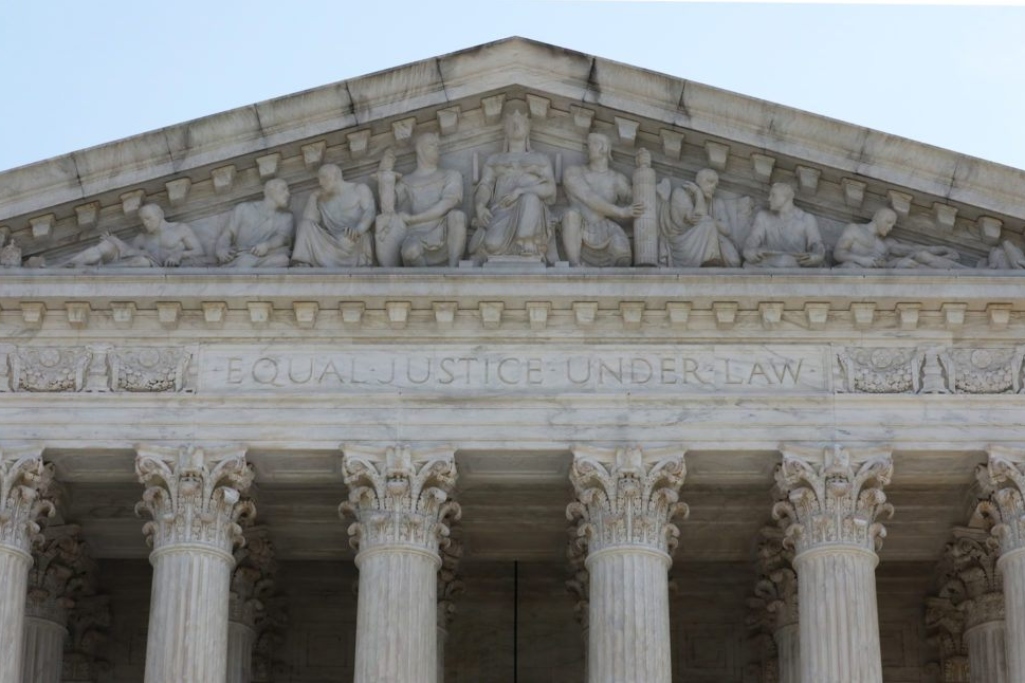
The Billy Graham Legal Defense Fund is helping persecuted Christians in Europe such as Adam Smith-Connor, who was convicted of praying silently on the streets of Dorset County, England in an “abortion buffer zone.”
CHARLOTTE, N.C. (BP) — The Billy Graham Evangelistic Association (BGEA) and Samaritan’s Purse are helping Christians persecuted for their faith in the United Kingdom through a legal defense fund of more than $1.2 million.
Franklin Graham, president and CEO of both BGEA and Samaritan’s Purse, envisioned the fund after fighting legal battles spanning 2018-2024 related to his spreading the gospel in several European cities, Justin Arnot, BGEA general counsel, told Baptist Press.
The Billy Graham Defense Fund has already contributed to the legal defense of those persecuted in Europe, Arnot said, after being established in 2024 with the approximately $650,000 (500,000 pounds) BGEA won in its legal battles, plus an equal matching gift from Samaritan’s Purse.
“Our funding goes to the groups that are trying to orchestrate the help,” Arnot said, referencing nonprofit religious liberty advocates Alliance Defending Freedom (ADF) and International Christian Concern.
But Arnot did mention two legal cases of particular interest to BGEA, specifically the cases of Bristol preacher Dia Moodley, whom ADF successfully defended after he was banned from publicly criticizing other religions; and Adam Smith-Connor, who was convicted of praying silently on the streets of Dorset County, England, in an “abortion buffer zone.”
Arnot appreciates that the fund is available to help those in need, he told Baptist Press.
“I have a great deal of compassion for Christians that are told to be silent, or threatened, or arrested or whatever the situation is, and are looking for help,” he said. “I mean, that really resonates with me. And so it’s a real privilege to be able to have a role, that we can have some part in bringing help into that picture.”
BGEA’s legal battles began after members of the LGBTQ community accused Graham of hate speech for proclaiming biblical sexuality. Although thousands of Christians and hundreds of churches supported the event, an advertisement of a 2018 event in Blackpool, England, was removed from a public bus, and seven venues for a subsequent eight-city tour in 2020 canceled his appearances, Arnot said.
“It took us the better part of four years to get all of that resolved,” Arnot said of the venues for the 2020 tour, but he spoke with compassion toward those BGEA battled in court. “In many of these situations, public authorities like city council members got involved and many of those are politicians that have particular constituencies that are opposed to our beliefs. And so the pressure got quite intense.”
In that respect, the cancellations were not surprising, Arnot said.
“But the way back in situations like that or the way to avoid them is to rely on commercial reasonableness,” Arnot said. “The classic position that a venue would take (is) we’re a neutral venue, we serve people from across the spectrum of belief and events of all kinds. That’s the safe position for these groups to take. And so they were ultimately able to regain that footing, resolve the dispute with us and allow our events to go forward.”
Many confessed faith in Christ during the events, which Arnot said were supported by thousands of Christians and hundreds of churches in Europe.
“Not only did we end up resolving things in a very constructive way, but even the staff and the executive leadership there was very cooperative at the end of the day,” Arnot said, adding that the cancellations were likely outside the control of venue leaders. “I would consider most of them to be trusted colleagues.”
Early in the ordeal, Franklin Graham invited his opponents to attend the public sermons.
“The rub, I think, comes in whether God defines homosexuality as sin. The answer is yes. But God goes even further than that, to say that we are all sinners – myself included,” Graham said in a 2020 tweet reposted at billygraham.org. “The Bible says that every human being is guilty of sin and in need of forgiveness and cleansing. The penalty of sin is spiritual death – separation from God for eternity.
“That’s why Jesus Christ came. He became sin for us. He didn’t come to condemn the world. He came to save the world by giving His life on the Cross as a sacrifice for our sins. And if we’re willing to accept Him by faith and turn away from our sins, He will forgive us and give us new life – eternal life – in Him.”
(EDITOR’S NOTE — Diana Chandler is Baptist Press’ senior writer.)


